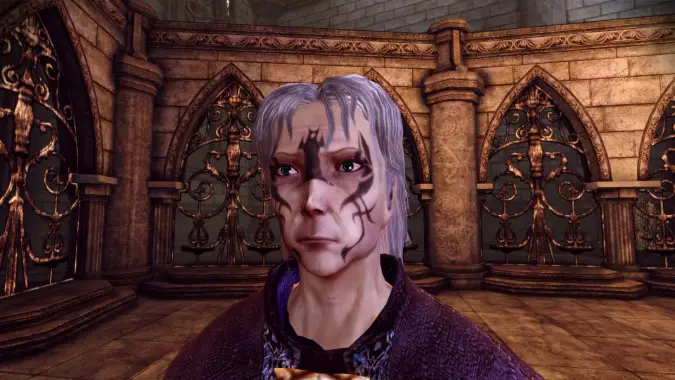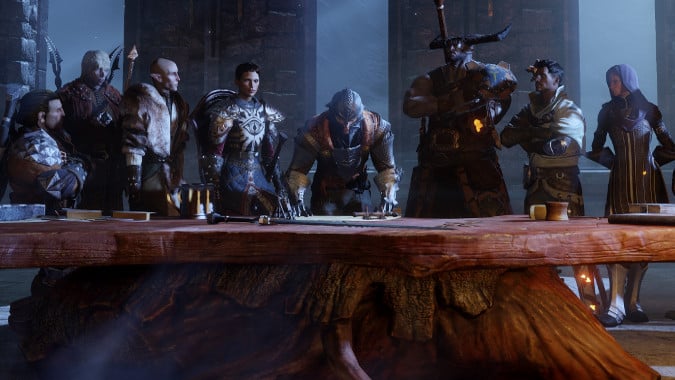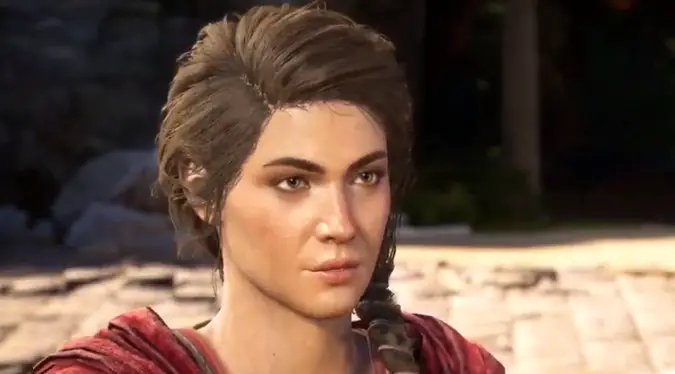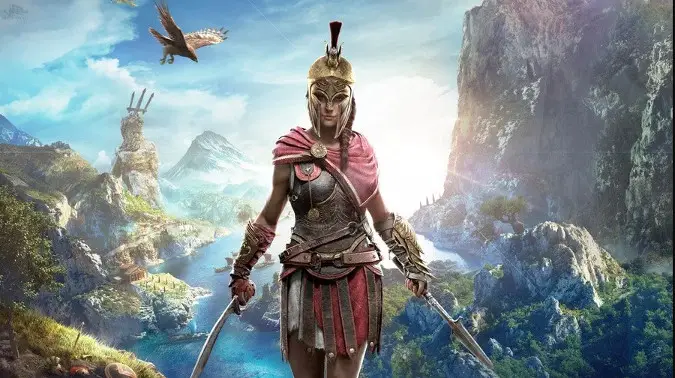Off-Topic: Can a great game feel like it doesn’t belong in its equally beloved series?

Sometimes I desperately wish that Dragon Age Inquisition wasn’t a Dragon Age game. Not because I don’t like Inquisition — in fact, I love that game. Played the heck out of it. But the astonishing thematic shift between each game in the series — between Origins and its sequel, and then between Dragon Age 2 and Inquisition almost make all three games feel like completely unrelated games even as old familiar characters appear and reappear. They’re clearly all within the same setting — the continent of Thedas, to be precise, and they take place in overlapping territories (Ferelden appears in all three games, as the entire setting for Origins, in a flashback in Dragon Age 2, and as one of the two nations you can explore in Inquisition) but the shift between playing as a Gray Warden, then a refugee out to make his or her fortune, and then the Inquisitor creates very different tones.
It’s not as easy as just trying to chop the three games apart. They have so much connective tissue between them, and in a way it’s fascinating to see the Wardens as our perspective on them changes — from the wholly heroic organization we’re a part of in Origins to the shadier, more pragmatic group it’s revealed to be in the expansion Awakenings, and then the constant moral shifts you witness in Dragon Age 2 and Inquisition. By the time Corypheus is running amok, the Wardens are almost a shell of their former selves, riddled with compromises and corrupted by the ancient Darkspawn, less a tool for protecting the world and more a liability.
In the end, I can’t imagine Inquisition without the world it inhabits, but I can’t shake the feeling that I’m barely playing in the same series as I was when I first started up Origins.

How new is too new?
Another example is Assassin’s Creed Odyssey — a game I absolutely, unabashedly love and sing the praises of every chance I get to the point where I’m sure you’re all heartily sick of me. But the fact is, as much as I love it, it’s the only game in the whole Assassin’s Creed series I’ve liked, and that’s because it’s the only fully fledged RPG of the series — it’s a game that owes as much of its design to The Witcher games or Skyrim or even Dragon Age Inquisition as it does to the predecessors in its own series. People have rightly criticized it for some pretty big departures — it’s set before the Assassin Order was created (in the previous game, Assassin’s Creed Origin, set nearly 350 years after Odyssey) and while the Isu and the modern day Assassin Layla Hassan both feature heavily, in many ways you could imagined ACO as a separate game.
Ubisoft really could have just made this a game about magical artifacts and an ancient conspiracy vs. a lone heroic warrior with magic powers and it wouldn’t have been much different. It didn’t have to be an Assassin’s Creed game at all.
The story of Alexios or Kassandra, descendant of Leonidas and Eagle Bearer, Misthios, and wandering hero could well have been completely separated from the overarching story of the Templars and Assassins. Even the Isu bits could have been seamlessly transplanted into actual ancient myths or even just brought over. The Assassins and Templars are heavily involved in the Isu mythos, but the Isu themselves could well be featured in a game without either of those groups playing any role whatsoever.

This is definitely not the same game
In some ways, I understand why some players find ACO so jarring. The combat system is wholly distinct from the original games. Gear and items straight out of the RPG playbook are heavily incorporated. There’s actual player choice and branching dialog — familiar if you’ve ever played a Bioware RPG. And you are not playing a capital-A-Assassin here — you certainly engage in stealthy assassinations, but you’re not a member of the organization. Heck, it doesn’t even exist yet.
The Assassin’s Creed games are very much about two shadowy global organizations with completely distinct ideologies battling each other for control of ancient relics and the world at large. Assassin’s Creed Odyssey is very much the story of one person waging war on a group that resembles both the Templars and the Assassins at different times.
But just like Inquisition ultimately is very much a part of its world, I think that Odyssey is in a lot of ways a crucial piece in understanding its setting. Because the message of Odyssey and its various DLC very much seems to be that nobody is alone. Even this seemingly solitary hero isn’t important for their one-person war against the Cult of Kosmos, but rather for the connections they made, the choices they lived through, the example they set, and the results of their life. In many ways, Odyssey is the story of how the Eagle Bearer couldn’t do it all alone. That a group like the Assassins would have to come into existence to oppose the Order of the Ancients who would themselves become the Templars in response to the Hidden Ones who would rise because of the Eagle Bearer’s family line.

Branching paths from the same source
In the end, I think that games can still be part of a series, and an important part, while playing very much like departures. It’s a healthy way for series to develop and evolve their settings and keep from stagnating. If Skyrim played exactly like Oblivion or Morrowind the series would stagnate. There needs to be continuity, a feeling of belonging and familiarity, but at the same time the games have to change and evolve in order to evolve their settings. It’s good that Inquisition is a Dragon Age game — it’s good for Inquisition itself, and it’s good for Dragon Age as a whole.
Please consider supporting our Patreon!
Join the Discussion
Blizzard Watch is a safe space for all readers. By leaving comments on this site you agree to follow our commenting and community guidelines.
 @MatthewWRossi
@MatthewWRossi




